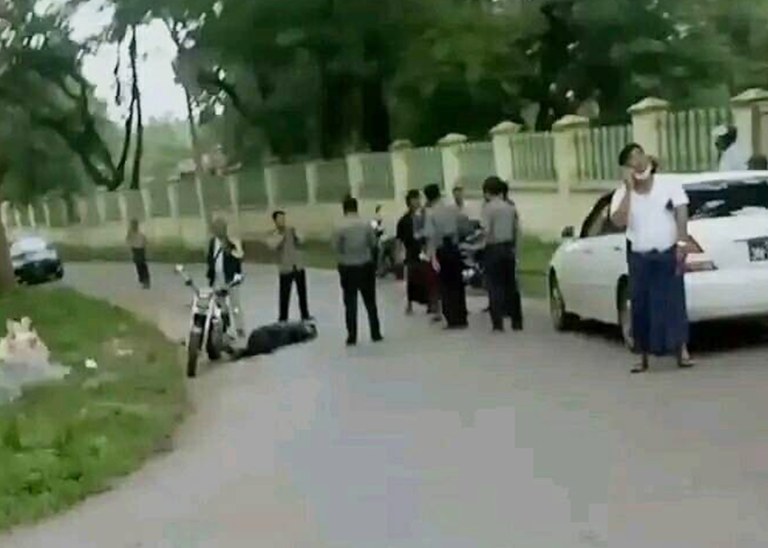
EU lawmakers find ‘serious risk of genocide’ in China’s repression of Uyghurs
Members of the European Parliament on Thursday easily passed a resolution calling the Chinese government’s systemic human rights abuses against the mostly Muslim Uyghur minority “crimes against humanity and a serious risk of genocide.” The EU condemned “in the strongest possible terms that the Uyghurs have been systematically oppressed by brutal measures including mass deportation, political indoctrination, family separation, restrictions of religious freedom, cultural destruction, and extensive use of surveillance.” The resolution said “credible evidence about birth prevention measures and the separation of Uyghur children from their families amount to crimes against humanity and represent a serious risk of genocide.” Lawmakers also passed a separate resolution to ban products made using forced labor into the EU market, expected to take effect in September, and pushed for new sanctions against high-level Chinese officials responsible for policy in the Xinjiang Uyghur Autonomous Region. The Parliament also demanded that U.N. human rights chief Michelle Bachelet, who recently traveled to Xinjiang, release a long-awaited report on human rights violations in the region, saying that she “failed to clearly hold the Chinese government accountable.” That measure followed the release of “Xinjiang Police Files,” leaked police records from internment camps in the XUAR with details about more than 20,000 detained Uyghurs. The files were released in May by German researcher Adrian Zenz, who is an expert on internal Chinese government documents and the Xinjiang internment campaign. “The Xinjiang Police Files have clearly been a wake-up call for the European Parliament to sense the urgency of the situation and the need for effective action,” said Dolkun Isa, president of the World Uyghur Congress (WUC), in a statement issued Thursday. “The EU and its member states must now act upon these calls and do everything they can, in cooperation with governments and civil society worldwide, to end the Uyghur genocide.” The actions by EU Members of Parliament (MEP) follow declarations from the U.S. and other Western governments that Chinese repression in Xinjiang is a crime against humanity and meets the legal definition of a genocide. “The Uyghurs around the world — we are on your side, so we have a strong resolution today in this parliament, so stay strong,” said German MEP Engin Eroglu, a resolution cosponsor, after the vote. “We fight with you for the human rights.” “It’s very important to name the crime, and so today is a historic day, and not only because of the resolution on the genocide, but also because we voted for the import bans,” said French MEP Raphaël Glucksmann, another cosponsor of the resolution. “We will strike a heavy blow at this crackdown machine of the Chinese Communist Party, and this is only the beginning of the struggle,” he said. “You are not alone. We stand with you. Europe stands with you.” ‘What are they waiting for?’ At least 1.8 million Uyghurs and other Turkic minorities are believed to have been held in a network of detention camps in Xinjiang since 2017, purportedly to prevent religious extremism and terrorist activities. Beijing has said that the camps are vocational training centers. The government has denied repeated allegations from multiple sources that it has tortured people in the camps or mistreated other Muslims living in Xinjiang. “Today we have a feeling that we are not alone,” Dolkun Isa said at the European Parliament building in Strasbourg, France, following the vote. “We have a lot of supporters.” U.S.-based Campaign for Uyghurs (CFU) said it supports “the robust, direct and solid action of the European Parliament to hold the Chinese accountable for their genocide” in Xinjiang. “The Chinese regime’s claims that the so-called vocational training centers are for reeducation are proven false by the ‘Xinjiang Police Files,’” said CFU’s executive director Rushan Abbas in a statement. “Uyghurs and other Turkic groups in East Turkestan have been subject to totalitarian oppression for years as the evidence in these most recent papers further proves,” she said, using Uyghurs’ preferred name for Xinjiang. U.S.-based Uyghur Human Rights Project (UHRP) called on EU member states to take steps to ensure that the atrocities are subject to relevant international accountability mechanisms. “There is no better time to finally bring the case to an international court to adjudicate the evidence of atrocities,” said Omer Kanat, UHRP’s executive director. “The European Parliament just affirmed the EU’s own obligation to prevent genocide — what are they waiting for?”




